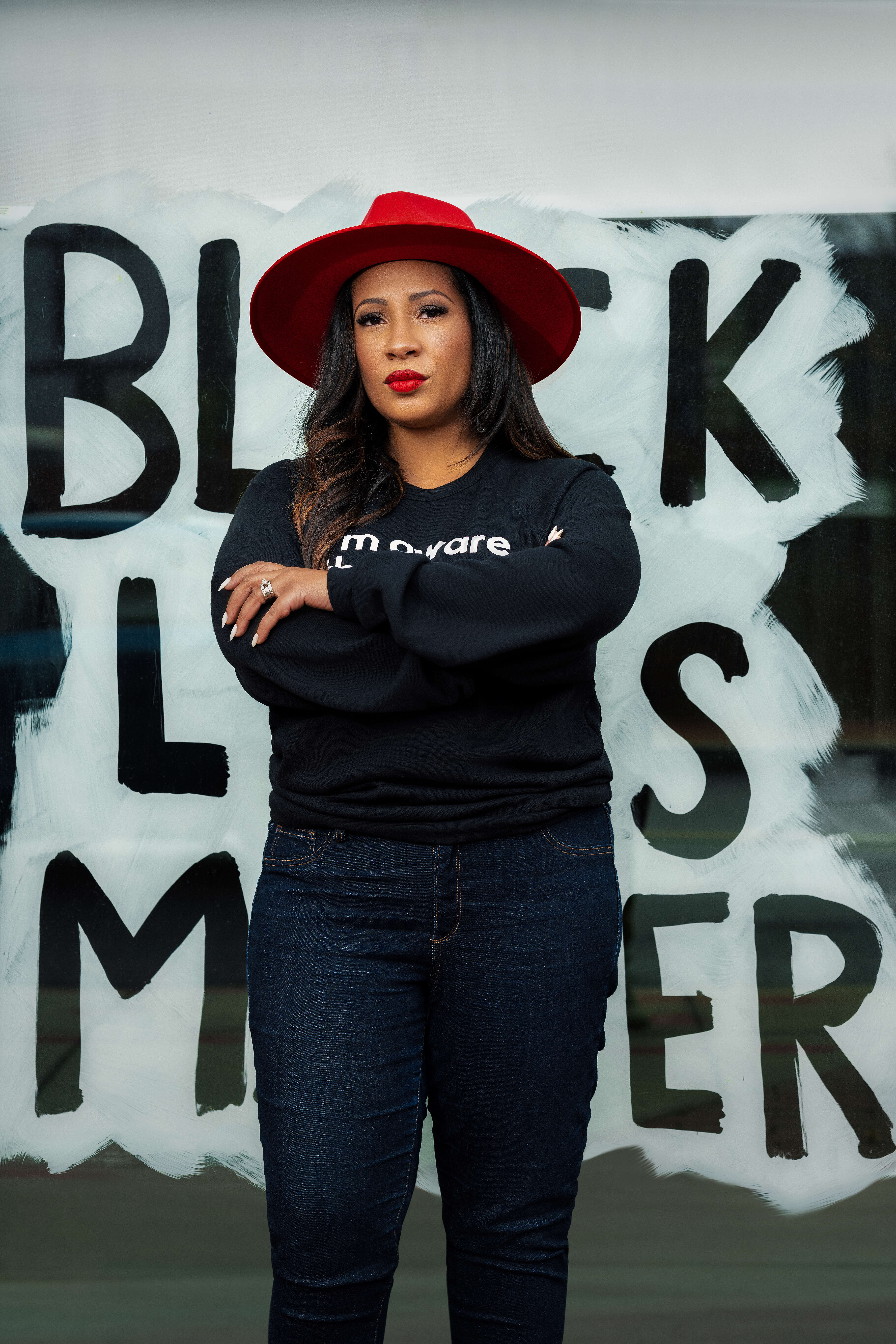Ebony Twilley Martin is the Executive Director of Greenpeace USA.
My journey into the climate movement, and into Greenpeace, began as a mother. About fourteen years ago, my then 3-year-old son was diagnosed with asthma. As many people in my community do, I had always thought asthma was hereditary, but my son’s doctor pointed to pollution in the environment as the probable cause for his suffering.
Like any parent, I wondered what I could do to change this. As a mother, my job is to make my child feel better. When a child is in pain, you can give them Motrin or Tylenol, but when your child says they can’t breathe, what do you do? I began to research and found that Black children are disproportionately impacted by asthma. I also learned that the burden of pollution is not evenly distributed. I found out that Black and Brown people are more exposed to harmful pollutants in the air, especially those that live near big sources of pollution. The evidence was clear: there is a direct connection between racism and exposure to environmental pollution – between the policies that relegate Black and Brown communities to neighborhoods with fewer trees, higher rates of pollution, and closer proximity to toxic industrial facilities, and the resulting health consequences. And yet it is those communities that often have the least power to fight back, in part because right wing extremists have been systematically restricting voting rights with the goal of suppressing turnout for voters of color. This means that the very people who would vote against gas and oil corporations and for greener policies are being silenced.
That’s why I got involved in the environmental justice movement.

To win the fight for our planet, this planet- the ONLY planet- the climate movement must be powered by racial justice.
One of the reasons I was drawn to Greenpeace USA was that I admired their longstanding history of successful campaigning against those who put profits over people. Whether it’s exposing the destruction of forests or shining a light on giveaways to the gas and oil industry, Greenpeace has always brought people together in peaceful protest to protect what belongs to all of us: Earth. Although I did not come from a campaigning background, I was compelled by the possibility of using Greenpeace’s proud legacy of successful campaigning to engage even more people and communities – especially the ones most affected by the devastating effects of climate change.
Black, Brown, and Indigenous communities have been on the frontlines of some of Greenpeace’s most important fights. But too often, their stories were excluded from history.
That ends now. I am determined to change our culture and the stories we tell – to stand beside and uplift up the voices of people who are too often silenced or dismissed.
As Executive Director, I want to use Greenpeace’s tools and strategies to connect the most affected Black, Indigenous and people of color, with the environmental justice movement. I want families like mine to have the support they need to advocate for themselves and hold the powerful accountable.
This is an ongoing journey, as Greenpeace USA works to become a more inclusive, justice-oriented organization —in the 10 years I’ve been with Greenpeace USA, we’ve increased staff of color from 13% to 55% . I am ensuring that our organization reflects the racial diversity of our nation. I want our communities to look into Greenpeace and say they feel represented in our organization. We continue to expand our focus to include all aspects of environmental justice, including protecting people’s voting rights and ensuring that everybody is able to participate in our democracy. And we continue shifting to a people-centered approach that organizes around racial justice to advocate for the planet and maximize our impact.
Quoting the prophet Amos, Dr King once said, “Let justice roll down like waters.” Water has a sound when it’s moving and water is all encompassing if you allow it to move freely. Water spills out and rolls over, washing over every surface and seeping into every crack. At Greenpeace USA, we are working to make justice saturate everything in our midst, just like water. And I am listening for the sound of justice — in voices throughout our organization, in the ways we engage with communities, and in how we show up in the world.
As a longtime justice strategist, I know that Greenpeace USA is in the right position to dismantle systems of oppression and engage more Black and Brown communities in this work — so that we can truly build a greener, more peaceful, more just world for all.
